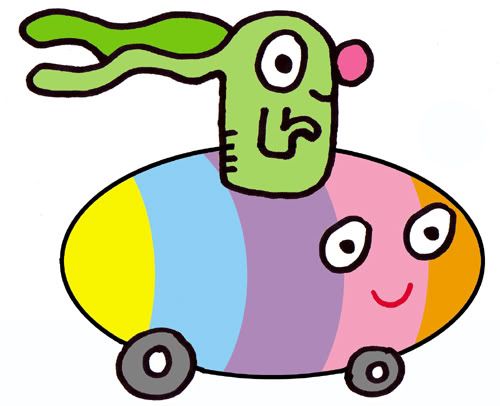Tuesday, February 16, 2010
Background information What actually happens to the egg shell?
Eggs contain something called "calcium carbonate". This is what makes them hard. Vinegar is an acid known as acetic acid. When calcium carbonate (the egg) and acetic acid (the vinegar) combine, a chemical reaction takes place and carbon dioxide is released. The chemical reaction keeps happening until all of the carbon in the egg is used up -- it takes about a day. When you take the egg out of the vinegar it's soft because all of the carbon floated out of the egg in those little bubbles. Since the egg shell is made out of "calcium carbonate" and is “eaten” up by the acidic vinegar, it leaves behind only the inner membrane which gives the egg a rubbery feeling. After 24 hours the shell will be gone and portions of it will be floating on the surface. The egg remains intact because of the thin see-through membrane that is normally between the shell and the egg white. Also, the size of the egg has slightly increased. Vinegar is made of acetic acid and eggshells are made of calcium carbonate. Acetic acid reacts with the calcium carbonate and dissolves the shell.
http://www.blurtit.com/q396324.html
|







